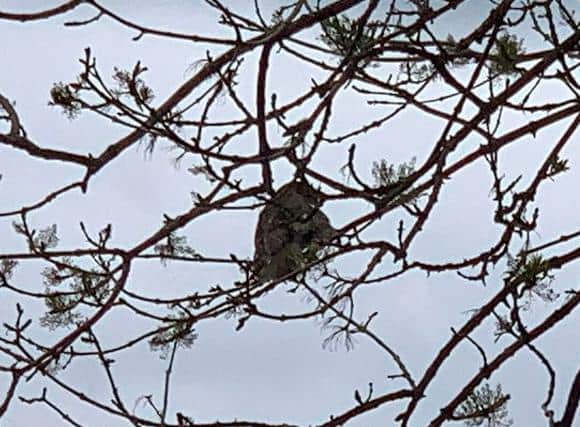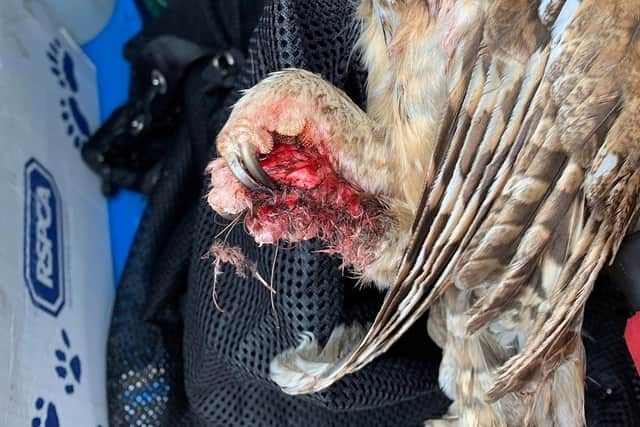RSPCA urges people to take litter home as figures reveal shocking toll on animals in the north west
and live on Freeview channel 276
Statistics released by animal welfare charity the RSPCA this week showed its officers responded to more than 600 calls to animals affected by litter in the county.
In Greater Manchester, that number rose to 906 calls.
Now the RSPCA is urging people who are going out more since lockdown restrictions were eased to ensure they are taking their litter home with them or disposing of it properly and responsibly.
Advertisement
Hide AdAdvertisement
Hide Ad

Over the past five years (2015-2019), the RSPCA’s emergency hotline in England and Wales has received 6,466 calls about animals affected by general litter - like tin cans, plastic bottles and elastic bands. There have also been 15,183 reports relating to animals injured or caught in angling litter. There have been a further 12,904 reports of animals and birds trapped in netting, which includes netting discarded as rubbish but this also includes sports netting or netting put on bushes or trees to deter birds.
The charity’s frontline officers are regularly called to help cats, birds and wildlife who have got themselves tangled in netting, injured in fishing litter or stuck in rubbish.
Head of the RSPCA’s wildlife team Adam Grogan said: “Our staff are dealing with thousands of incidents every year where animals and birds have been impacted by litter - and they’re the ones that we know of. I’m sure for every animal we’re able to help there are many that go unseen, unreported and may even lose their lives.
“Litter is one of the biggest hazards our wildlife faces today – and it’s something that’s very easy to resolve. That’s why we’re calling on the public to take extra care to clear up after they’ve been out for a walk or enjoyed a picnic in the woods.
Advertisement
Hide AdAdvertisement
Hide Ad

“Now that the Government has eased some of the lockdown restrictions, we’re sure lots of families will be out and about in nature. But it’s our job to protect nature and that includes properly and responsibly disposing of our litter so that animals can’t be hurt.”
As well as everyday rubbish, the RSPCA also sees many animals arriving into its care with terrible injuries caused by angling litter such as discarded fishing line and plastic netting.
Adam added: “The majority of anglers do dispose of their litter properly and it is frustrating that those who don’t possibly don’t realise how dangerous it is to animals.
“We strongly urge those who enjoy fishing to be extra cautious to make sure nothing is left behind. Most anglers are very responsible when disposing of their litter, but it only takes one careless person to endanger the life of an animal. We ask that all those who enjoy fishing to follow the Angling Trust Take 5 campaign and make use of the recycling scheme to dispose of their waste tackle.
Advertisement
Hide AdAdvertisement
Hide Ad“If members of the public see discarded litter we would encourage them to pick it up safely and put it in the bin, remembering to wash their hands after. Their action could save an animal’s life.”
• In Lancashire, the RSPCA received 388 calls relating to angling litter, and 221 relating to general litter, for a total of 609.
• In Greater Manchester, those figures were 663 for angling litter calls, and 243 for general litter, for a total of 906.